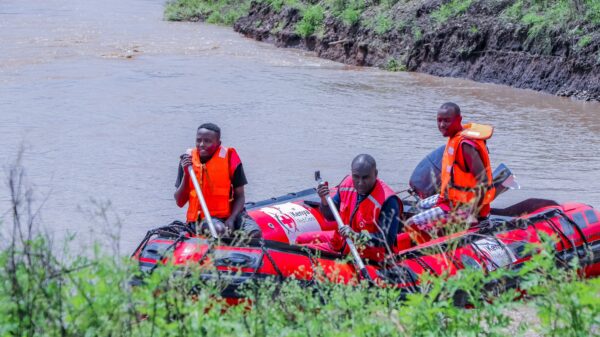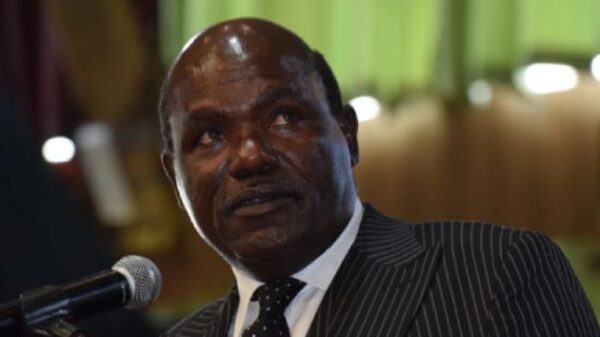NAIROBI, Kenya May 14 – Kenya has committed to bridging the digital divide as part of measures to ensure guaranteed education for all, even when there is a pandemic like the COVID-19 that led to thousands of school dropouts last year, particularly girls.
The Ministry of Education said more than 12,000 learners who registered for the Kenya Certificate of Primary Education (KCPE) examinations did not turn up, many of them being girls said to have fallen pregnant. Officials said Gender-based violence is another factor that led to school dropouts.
“We have to pick up on digital learning so that even when we are affected by the pandemic, all children get access to education. We need to break the digital divide,” President Kenyatta said Thursday during a virtual meeting with UK Prime Minister Boris Johnson, with whom they toured schools in London and Nairobi.
Statistics released by the Ministry of Education show that girls were worst affected in the pandemic that struck the country in March last year, forcing the closure of schools for a year until January 2021. While some schools embraced digital learning, majority did not in what officials at the Ministry of Education blamed on lack of proper infrastructure to support digital learning.
During this long recess 652 schoolgirls in secondary school who were studying in their final year, Form Four, were impregnated and had to sit for their exams while pregnant or after giving birth, an increase of three times from 2019 when only 282 were affected.
“I am on the issue of driving digital learning to ensure that no child will not be able to access education,” President Kenyatta said.
The UK Prime Minister too emphasized the need for governments across the world to work together to bridge the digital divide and also the divide between boys and girls.
“We want to see concrete results and make up for the lost time experienced last year,” he said at Cleves Cross Primary School in Ferryhill, England as Kenyatta toured Westkans Primary School in the capital, Nairobi.
They both called on rich nations to support the education of children in low-income countries by backing the Global Partnership for Education (GPE) initiative.
GPE is a multilateral platform that seeks to raise 5 billion USD to support the education of 175 million children in low-income countries across the world.
In July this year, Kenya and the United Kingdom will host a high-level summit in London during which they target to raise the money, some of which will be specifically invested in girl-child education and bridging the digital learning divide.
“Of course in some parts of the world like Kenya and, many other parts of the globe resources are scarce. That is why Boris and I are really trying to work hard in the next couple of months to raise money to ensure no child is left behind, and everyone has an opportunity to get quality education that gives them a quality foundation to be great citizens of the globe in the years to come,” President Kenyatta said.
PM Johnson agreed with President Kenyatta saying the world needs to comet together led by rich nations, to pool finances to ensure children have access to quality education even as countries battle Covid-19.
“We want the world to come together, we want the richest countries to make a big contribution to educating young people of the planet. We want to bridge the digital divide, we are going to help people with technology and we are also very focused on the divide between boys and girls,” the British PM said.
In Kenya, the girl child faces numerous challenges, that disadvantage them from boys, often leading to dropping out of school, including Female Genital Mutilation (FGM) and early marriages.
President Kenyatta has vowed to eliminate the practice by the end of 2022 which his second and final term will end.
“If we want to achieve our national goals, we have to change and offer our girls opportunities in education to excel.
“If you look around the world, women are holding high positions and we don’t want to be left behind because of retrogressive cultural activities,” the President said.
While highlighting the benefits of educating girls, the President advised communities where FGM is rampant to give their boys and girls an equal opportunity to attend school.
“I know it is possible for our girls to go through alternative rites of passage without suffering,” President Kenyatta said.
























































